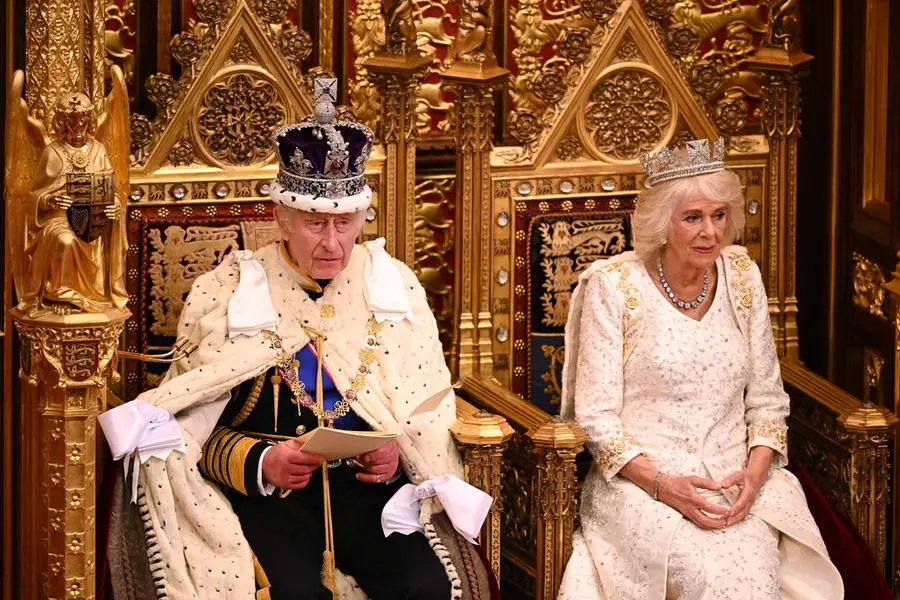PHOTO
King Charles III will read out Labour's first programme for government in a decade and half on Wednesday when the UK parliament formally reopens following the July 4 election.
Prime Minister Keir Starmer will put turbocharging economic growth at the heart of his legislative plans as Labour runs the UK for the first time in 14 years.
"The legislation set out at the King's Speech will build on the momentum of our first days in office and make a difference to the lives of working people," said Starmer, who led his party to landslide win over the Conservatives.
Despite its name, the address is not written by the monarch but by the government, which uses it to detail the laws it proposes to make over the next 12 months.
Wearing the diamond-studded Imperial State Crown and a long crimson robe, King Charles will deliver the proposals from a golden throne in the House of Lords upper chamber during a lavish ceremony.
The speech is expected to include more than 35 bills, including measures to enforce public spending rules and others to prevent a repeat of the utility bill price hikes that triggered the UK's recent cost-of-living crisis.
The legislation will also flesh out announcements already made, such as the launching of a fund to draw investment into the UK and of a publicly owned body tasked with boosting clean power by 2030.
Labour is also likely to announce the restoration of mandatory housebuilding targets, plans to renationalise Britain's much-maligned rail services, as well as the opening of recruitment for a new border security command.
A bill to boost workers' rights, including a ban on zero-hour contracts, and strengthened protections for renters are also expected to be included in what will be centre-left Labour's first such speech since it was ousted from power in 2010.
"This is a hungry party," former Labour minister Tony McNulty told AFP.
"They are chomping at the bit to show that they can get back to being what they see as the natural party of government."
- Ceremonial 'hostage' -
The day's proceedings will start at 9:30 am (0830 GMT) when royal bodyguards ritually search the basement of the Palace of Westminster for explosives -- a legacy of the failed attempt by Catholics to blow up parliament in 1605.
The sovereign will then travel to the Houses of Parliament by carriage from Buckingham Palace, escorted by mounted cavalry.
Tradition dictates that an MP is ceremonially held "hostage" in the palace to ensure the king's safe return.
A parliamentary official known as Black Rod will have the door of the lower chamber House of Commons slammed in their face, a tradition that symbolises parliament's independence from the monarchy.
MPs will follow Black Rod to the upper chamber, where King Charles, as head of state, will give the speech to assembled lords and ladies in red and ermine robes, plus invited members of the elected Commons shortly after 11:30 am.
In keeping with the convention that monarch is above politics, keen environmentalist King Charles remained expressionless during the last address in November when then Prime Minister Rishi Sunak's government announced new oil and gas licences.
"There's probably much in this King's Speech that he will favour rather than the other one he had to read out," said McNulty, a British politics lecturer at Queen Mary University of London.
"But he'll play it with a straight face. That's the job."





















